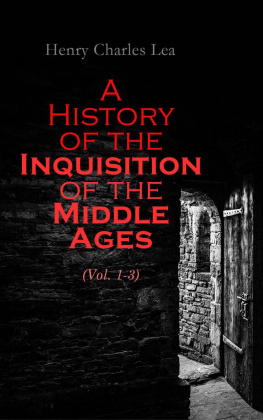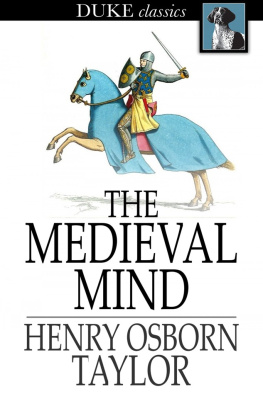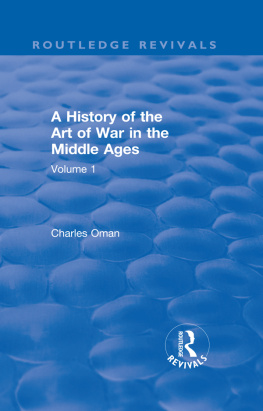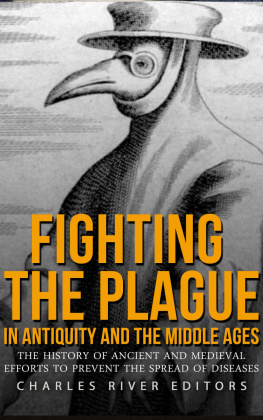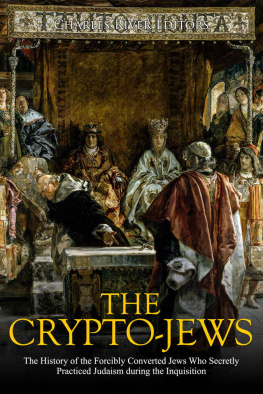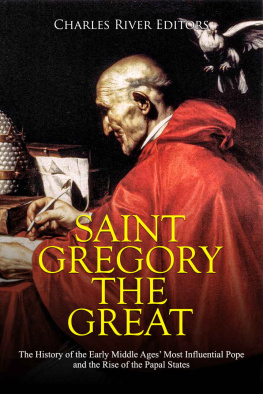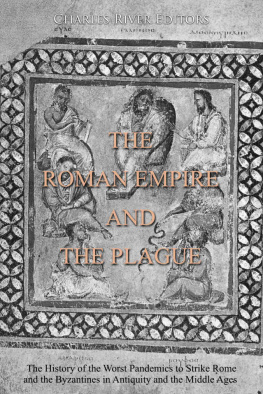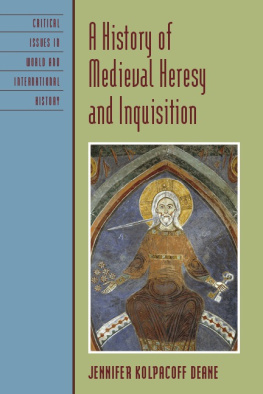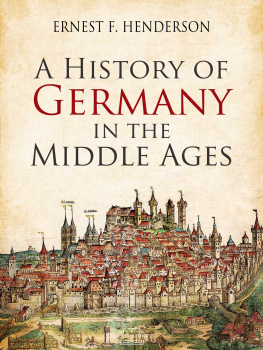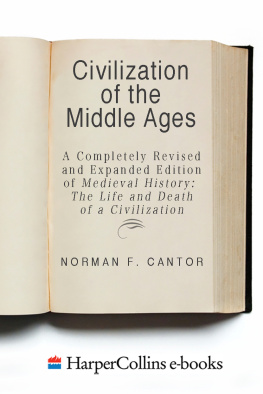CHAPTER I.
THE CHURCH.
Table of Contents
AS the twelfth century drew to a close, the Church was approaching a crisis in its career. The vicissitudes of a hundred and fifty years, skilfully improved, had rendered it the mistress of Christendom. History records no such triumph of intellect over brute strength as that which, in an age of turmoil and battle, was wrested from the fierce warriors of the time by priests who had no material force at their command, and whose power was based alone on the souls and consciences of men. Over soul and conscience their empire was complete. No Christian could hope for salvation who was not in all things an obedient son of the Church, and who was not ready to take up arms in its defence; and, in a time when faith was a determining factor of conduct, this belief created a spiritual despotism which placed all things within reach of him who could wield it.
This could be accomplished only by a centralized organization such as that which had gradually developed itself within the ranks of the hierarchy. The ancient independence of the episcopate was no more. Step by step the supremacy of the Roman see had been asserted and enforced, until it enjoyed the universal jurisdiction which enabled it to bend to its wishes every prelate, under the naked alternative of submission or expulsion. The papal mandate, just or unjust, reasonable or unreasonable, was to be received and implicitly obeyed, for there was no appeal from the representative of St. Peter. In a narrower sphere, and subject to the pope, the bishop held an authority which, at least in theory, was equally absolute; while the humbler minister of the altar was the instrument by which the decrees of pope and bishop were enforced among the people; for the destiny of all men lay in the hands which could administer or withhold the sacraments essential to salvation.
Thus intrusted with responsibility for the fate of mankind, it was necessary that the Church should possess the powers and the machinery requisite for the due discharge of a trust so unspeakably important. For the internal regulation of the conscience it had erected the institution of auricular confession, which by this time had become almost the exclusive appanage of the priesthood. When this might fail to keep the believer in the path of righteousness, it could resort to the spiritual courts which had grown up around every episcopal seat, with an undefined jurisdiction capable of almost unlimited extension. Besides supervision over matters of faith and discipline, of marriage, of inheritance, and of usury, which belonged to them by general consent, there were comparatively few questions between man and man which could not be made to include some case of conscience involving the interpellation of spiritual interference, especially when agreements were customarily confirmed with the sanction of the oath; and the cure of souls implied a perpetual inquest over the aberrations, positive or possible, of every member of the flock. It would be difficult to set bounds to the intrusion upon the concerns of every man which was thus rendered possible, or to the influence thence derivable.
Not only did the humblest priest wield a supernatural power which marked him as one elevated above the common level of humanity, but his person and possessions were alike inviolable. No matter what crimes he might commit, secular justice could not take cognizance of them, and secular officials could not arrest him. He was amenable only to the tribunals of his own order, which were debarred from inflicting punishments involving the effusion of blood, and from whose decisions an appeal to the supreme jurisdiction of distant Rome conferred too often virtual immunity. The same privilege protected ecclesiastical property, conferred on the Church by the piety of successive generations, and covering no small portion of the most fertile lands of Europe. Moreover, the seignorial rights attaching to those lands often carried extensive temporal jurisdiction, which gave to their ghostly possessors the power over life and limb enjoyed by feudal lords.
The line of separation between the laity and the clergy was widened and deepened by the enforcement of the canon requiring celibacy on the part of all concerned in the ministry of the altar. Revived about the middle of the eleventh century, and enforced after an obstinate struggle of a hundred years, the compulsory celibacy of the priesthood divided them from the people, preserved intact the vast acquisitions of the Church, and furnished it with an innumerable army whose aspirations and ambition were necessarily restricted within its circle. The man who entered the service of the Church was no longer a citizen. He owed no allegiance superior to that assumed in his ordination. He was released from the distraction of family cares and the seduction of family ties. The Church was his country and his home, and its interests were his own. The moral, intellectual, and physical forces which, throughout the laity, were divided between the claims of patriotism, the selfish struggle for advancement, the provision for wife and children, were in the Church consecrated to a common end, in the success of which all might hope to share, while all were assured of the necessities of existence, and were relieved of anxiety as to the future.
The Church, moreover, offered the only career open to men of all ranks and stations. In the sharply-defined class distinctions of the feudal system advancement was almost impossible to one not born within the charmed circle of gentle blood. In the Church, however much rank and family connections might assist in securing promotion to high place, yet talent and energy could always make themselves felt despite lowliness of birth. Urban II. and Adrian IV. sprang from the humblest origin; Alexander V. had been a beggar-boy; Gregory VII. was the son of a carpenter; Benedict XII., of a baker; Nicholas V., of a poor physician; Sixtus IV., of a peasant; Urban IV. and John XXII. were sons of cobblers, and Benedict XI. and Sixtus V. of shepherds; in fact, the annals of the hierarchy are full of those who rose from the lowest ranks of society to the most commanding positions. The Church thus constantly recruited its ranks with fresh blood. Free from the curse of hereditary descent, through which crowns and coronets frequently lapsed into weak and incapable hands, it called into its service an indefinite amount of restless vigor for which there was no other sphere of action, and which, when once enlisted, found itself perforce identified irrevocably with the body which it had joined. The character of the priest was indelible; the vows taken at ordination could not be thrown aside; the monk, when once admitted to the cloister, could not abandon his order unless it were to enter another of more rigorous observance. The Church Militant was thus an army encamped on the soil of Christendom, with its outposts everywhere, subject to the most efficient discipline, animated with a common purpose, every soldier panoplied with inviolability and armed with the tremendous weapons which slew the soul. There was little that could not be dared or done by the commander of such a force, whose orders were listened to as oracles of God, from Portugal to Palestine and from Sicily to Iceland. Princes, says John of Salisbury, derive their power from the Church, and are servants of the priesthood. The least of the priestly order is worthier than any king, exclaims Honorius of Autun; prince and people are subjected to the clergy, which shines superior as the sun to the moon. Innocent III. used a more spiritual metaphor when he declared that the priestly power was as superior to the secular as the soul of man was to his body; and he summed up his estimate of his own position by pronouncing himself to be the Vicar of Christ, the Christ of the Lord, the God of Pharaoh, placed midway between God and man, this side of God but beyond man, less than God but greater than man, who judges all, and is judged by none. That he was supreme over all the earthover pagans and infidels as well as over Christianswas legally proved and universally taught by the medival doctors.[1] Though the power thus vaingloriously asserted was fraught with evil in many ways, yet was it none the less a service to humanity that, in those rude ages, there existed a moral force superior to high descent and martial prowess, which could remind king and noble that they must obey the law of God even when uttered by a peasants son; as when Urban II., himself a Frenchman of low birth, dared to excommunicate his monarch, Philip I., for his adultery, thus upholding the moral order and enforcing the sanctions of eternal justice at a time when everything seemed permissible to the recklessness of power.

